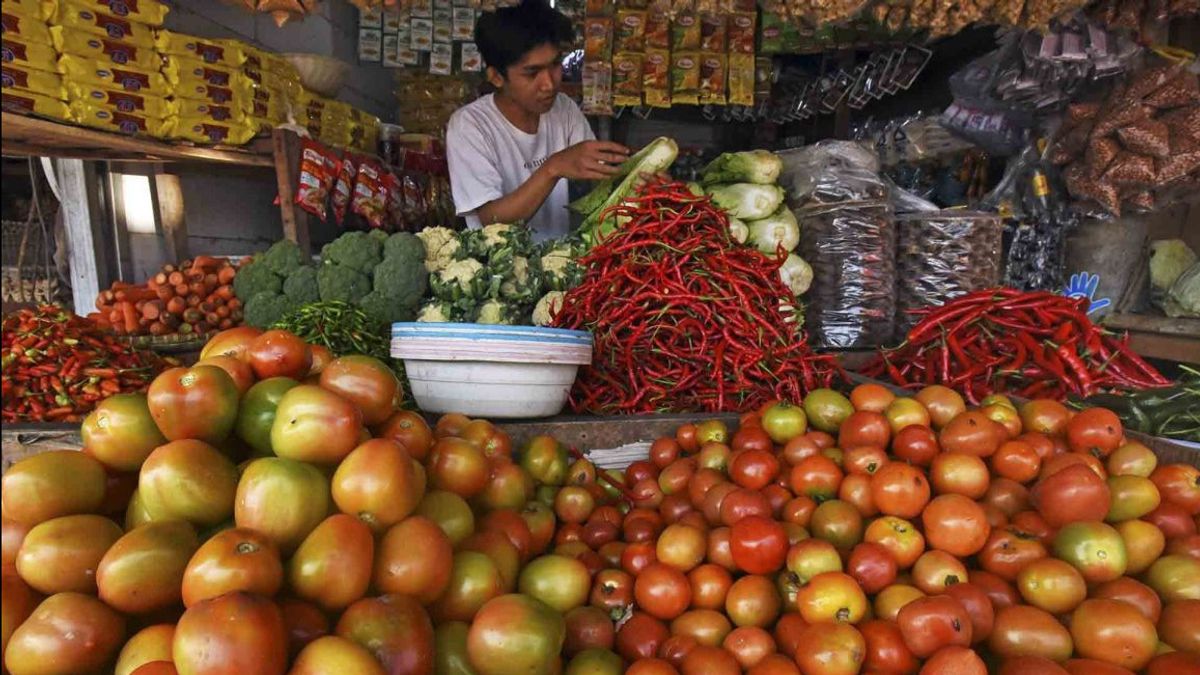JAKARTA - Economist of the Institute for Economic and Community Research, Faculty of Economics and Business, University of Indonesia (LPEM FEB UI) Teuku Riefky estimates that inflationary pressure will subside in September 2024, with inflation projected to remain within the target range of 1.5-3.5 percent.
"This is reflected in the General Price Expectation Index (IEH) for September 2024, which is slightly lower than in August 2024," Riefky said in Jakarta, quoted from Antara, Wednesday, September 18.
In addition, the decline in the price of non-subsidized fuel oil (BBM) in early September is also expected to ease inflationary pressures. However, inflationary pressures are expected to remain in the volatile food price component.
Rice production is expected to decline until October 2024, anticipating the impact of the upcoming La Nina season.
In August 2024, general inflation slightly decreased to 2.12 percent year on year (yoy), down from 2.13 percent yoy in July 2024, marking the lowest level since February 2022, but still within the Bank Indonesia (BI) target range of 1.5 to 3.5 percent.
"This thin decrease is mainly due to factors in terms of supply, especially the decline in food prices is volatile due to the horticultural harvest season," said Riefky.
Food, beverage and tobacco group inflation weakened to 3.39 percent yoy in August 2024 from 3.66 percent yoy in July 2024, the lowest since July 2023. Inflation also recorded a decline in other spending groups, such as 1.83 percent yoy education in August 2024 compared to 1.90 percent yoy in July 2024.
"The easing of this expenditure group is partly due to the fading of the impact of the new school year starting in July 2024," he said.
Meanwhile, core inflation in August 2024 rose slightly to 2.02 percent yoy from 1.95 percent yoy in July 2024. On a monthly basis, core inflation was recorded at 0.20 percent month to month (mtm) in August 2024, increasing moderately from 0.18 percent mtm in July 2024.
The main drivers of core inflation in August 2024 are powder coffee, gold jewelry, and education costs. The inflation is influenced by the continued increase in global commodity prices.
SEE ALSO:
Coffee prices continue to rise, where robusta coffee has reached its highest level in history and Arabic coffee has risen to its highest level in the last 2.5 months. The decline in production and increased demand exacerbated the condition of the global coffee market.
Global gold commodity prices continue to increase due to increased expectations of lower interest rates by the US central bank or the Fed which is expected to take place in September 2024.
In addition, the increase in core inflation is also contributed by the increase in education costs, because education costs are usually paid in July and August.
The English, Chinese, Japanese, Arabic, and French versions are automatically generated by the AI. So there may still be inaccuracies in translating, please always see Indonesian as our main language. (system supported by DigitalSiber.id)
















